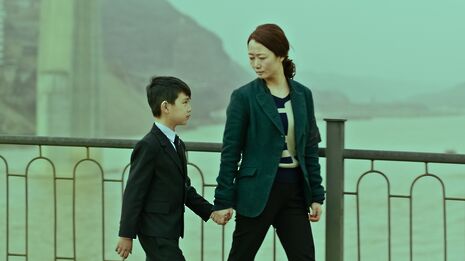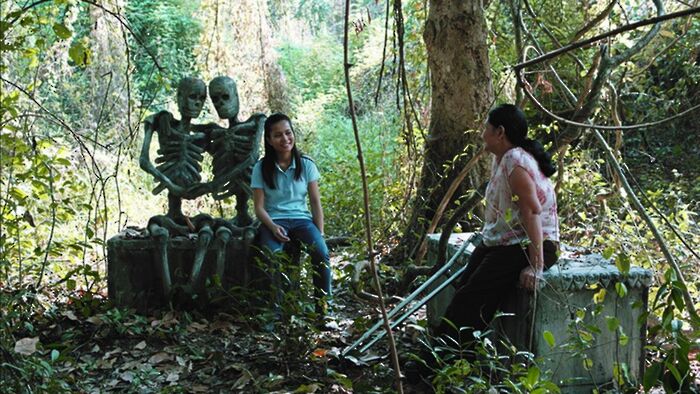Review: The world changes in Mountains May Depart
Moved by this remarkable Chinese drama, Toby Saer considers its narrative devices and cinematography.

The beautiful, long, slow shots of Mountains May Depart often do not show events or objects. Rather, Chinese director Zhangke Jia moves the camera close in on his characters’ faces, watching them react to what is happening offscreen. Rarely do these characters do anything of importance; instead, we follow as the world changes around them.
“It shows not only characters who change over time, but a country which moves on”
The film is set predominantly in China, and follows a recent trend in Hollywood of following the same characters over a triptych of time periods: 1999, 2014 and 2025. We follow a selection of characters, their lives intertwined in various ways. Our protagonist is Shen Tao, the only one to appear in person in all three time periods, played by the director’s wife and muse, Zhao Tao.
There is no driving narrative here, simply a collection of scenes played in chronological order, but with little indication of how far apart they are; within each act, time passes in a very loose sense, as scenes might be set anywhere from hours to months apart. It is then best experienced going in knowing almost nothing, and following these characters’ lives just as they experience them.
The English title, incidentally, is biblical - Isaiah 54:10 says, “For the mountains may depart and the hills be removed, but my steadfast love shall not depart from you”. This is the key to the film. It shows not only characters who change over time, but a country which moves on. The beginning of the film shows Tao performing a dance routine to the Pet Shop Boys’ ‘Go West’, and portrays a China which does just that.
These characters are aimless and powerless in the face of the slow but relentless change of the world they live in. The mountains are departing, but our characters remain in the same place, caught in the same ways, repeating the mistakes of those before them (at one point, a young boy chastises his mother for smoking, then later we see, with no comment, that he has taken up the habit himself).
The film is hardly perfect: it stumbles slightly in its English-language final act, set in 2025, with a future world not too dissimilar from our own, but with slicker technology – think Her or, less flatteringly, the final season of Parks and Recreation. However, the film builds up so much good will, and is so firmly committed to the unconventional, that even when it sticks slightly, it remains fascinating. One comes out of the film feeling as if decades have passed, feeling time slip through one’s fingers just as the characters do, with more and more things happening until, all of a sudden, it is over, far too soon, and, like the characters, there is nothing one can do
 News / Caius mourns its tree-mendous loss23 December 2025
News / Caius mourns its tree-mendous loss23 December 2025 News / Clare Hall spent over £500k opposing busway 24 December 2025
News / Clare Hall spent over £500k opposing busway 24 December 2025 Comment / Yes, I’m brown – but I have more important things to say22 December 2025
Comment / Yes, I’m brown – but I have more important things to say22 December 2025 Interviews / Politics, your own way: Tilly Middlehurst on speaking out21 December 2025
Interviews / Politics, your own way: Tilly Middlehurst on speaking out21 December 2025 Comment / The ‘class’ of Cambridge24 December 2025
Comment / The ‘class’ of Cambridge24 December 2025








